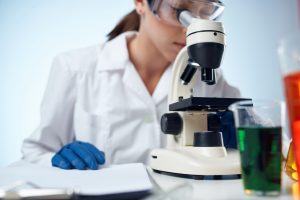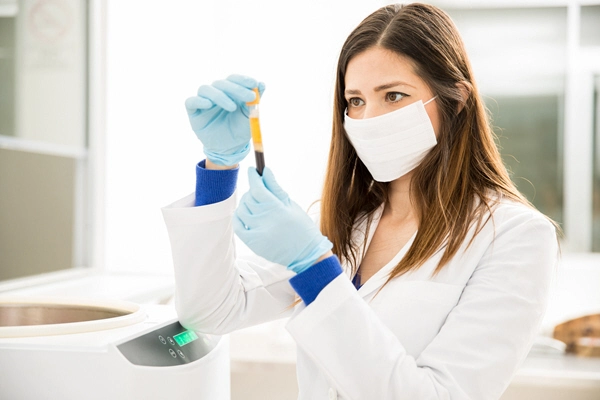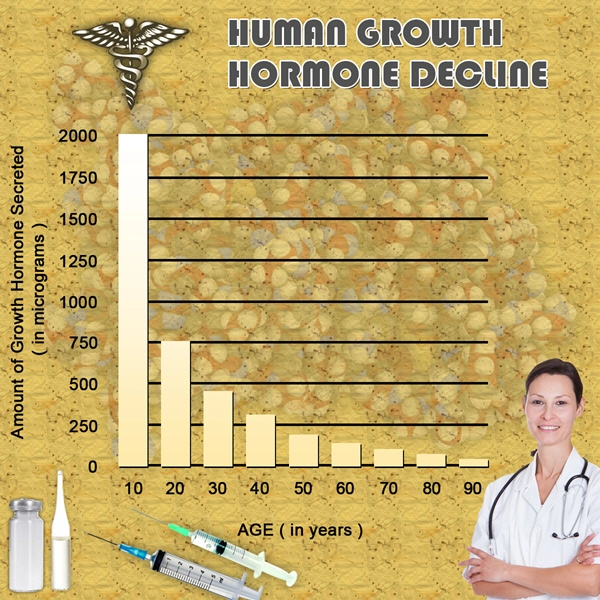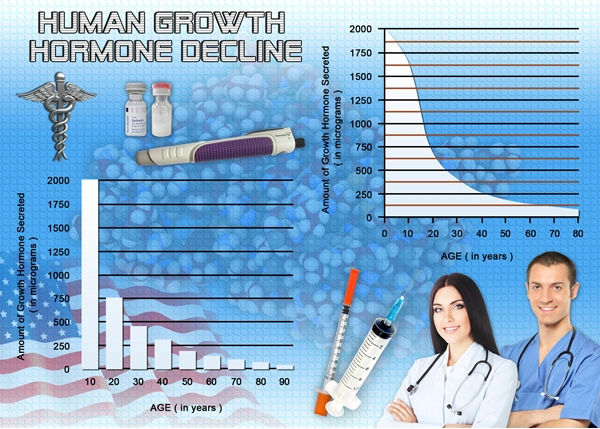 The recent global pandemic of Covid-19 (or Coronavirus) has everyone worried about their health and whether their immune system is up to snuff to fight this new evolving disease. However, the most concerned, and most vulnerable, are aging folks and HIV patients.
The recent global pandemic of Covid-19 (or Coronavirus) has everyone worried about their health and whether their immune system is up to snuff to fight this new evolving disease. However, the most concerned, and most vulnerable, are aging folks and HIV patients.
Both of these groups have compromised or severely deficient immune systems, so do some people with auto-immune diseases.
A Covid-19 infection can end their lives, even though the death rate in the grand aggregate is in the low single-digit percentage for mortality.
But it's not just Covid-19 either — there are dozens of other infectious microbes out there that can mutate and cause even worse infections than Covid-19. This increases the group of vulnerable people to a considerable degree.
Our immune systems are so crucial in terms of keeping us healthy — we need to ensure we keep them in working order so that we can live long and healthy lives. A significant part of our immune systems is the T-cells (or thymus-derived cells). T-cells are tiny cells that circulate through our bodies, attacking any infected cells (such as cancer cells) or pathogens, such as viruses or bacteria.
Mature T-cells emerge from an organ called the thymus, located just below the breast bone. T-cells are so vital to our health; they are often donated to people in need of them, such as HIV patients.
Video Link: https://vimeo.com/415716238
Video Download: Covid 19 Global Pandemic Boosting Your Immune Defense With Growth Hormone
Video Stream: Covid 19 Global Pandemic Boosting Your Immune Defense With Growth Hormone
Immune Function and Growth Hormone
Since T-cells are so incredibly important, ensuring that the manufacture of them remains steady is vital. This is where the thymus and growth hormone comes in. Growth hormone, a hormone produced in the pituitary gland, helps to regulate the function of the thymus.
Scientific research suggests a two-way relationship between the endocrine system and the immune system, with growth hormone being one of its mediators. Organs that are part of the lymph system – spleen and thymus – and peripheral blood produce growth hormone.
 Receptors for growth hormone are found on lymphocytes, such as T-cells. Growth hormone boosts the generation of both T and B cells (another type of lymphocyte) as well as immunoglobulin (antibodies).
Receptors for growth hormone are found on lymphocytes, such as T-cells. Growth hormone boosts the generation of both T and B cells (another type of lymphocyte) as well as immunoglobulin (antibodies).
There is clear communication taking place between the two systems. This exciting relationship has been noted in both in vitro and in vivo human and animal scientific studies.
Unfortunately, as we age and as with other organs, the thymus gland begins to shrink and be replaced by fat, reducing its ability to produce mature T-cells, thus, as we age, we become more vulnerable to autoimmune diseases and infectious agents, such as Covid-19 and other viruses. With our thymus glands shrinking and the risk of disease and infection increasing, scientific researchers have tried to determine the role of growth hormone in immunity and thymic function.
Growth Hormone Increases Immune Function in Immunocompromised Patients
One such study looked at whether increased thymic function could be generated and/or driven by growth hormone in HIV-infected adults. Twenty-four volunteers were put to the test throughout a two-year study.
The researchers found increased thymic mass – the typical shrinking of the thymus was reversed, and the organ grew – within six months of growth hormone treatment.
They also saw significant increases in T-cell circulation in the blood, indicating that the thymus was now doing its job. The researchers concluded that growth hormone therapy is associated with the maturation of T-cells.
They also concluded that either growth hormone or IGF-1 (a hormone that is produced in the liver that growth hormone stimulates into production) mediates the observed immune effects, stimulating the increases in T-cell numbers.
 It appears that growth hormone therapy can reverse thymus atrophy and therefore increase the numbers of T-cells in the human body — something that our elderly and HIV-infected populations desperately need.
It appears that growth hormone therapy can reverse thymus atrophy and therefore increase the numbers of T-cells in the human body — something that our elderly and HIV-infected populations desperately need.
A low-dose growth hormone therapy program would be advantageous to these groups, if they had a clinical need, especially during a Coronavirus pandemic, as we are experiencing now.
Our clinic can offer just that — to qualifying patients, of course. Remember to always be skeptical, do your own research, and get several second opinions from doctors.
If you feel that you may benefit from a low-dose human growth hormone replacement therapy program, do not hesitate to call us or fill out our contact form.
Many older folks out there may be experiencing increased incidences of illness, which may be caused by the shrinkage of the thymus gland or hormone imbalance. It is easy to talk to a qualified doctor who can walk you through the process of getting a simple blood test done to evaluate your growth hormone levels. Reach out to us today!
References

- Live Consciously and Live Better [Last Updated On: September 3rd, 2025] [Originally Added On: November 4th, 2020]
- HGH Injections: A New Revolution in Longevity, Health, Medicine, and Life Quality -- HGH Injection [Last Updated On: September 2nd, 2025] [Originally Added On: November 10th, 2020]
- The Baby Boomer Dilemma -- To Use, or Not to Use, HGH to Fix Your Lifestyle Mistakes [Last Updated On: November 16th, 2025] [Originally Added On: January 10th, 2021]
- How HGH and Testosterone Can Make a Huge Difference in Your Life [Last Updated On: October 24th, 2025] [Originally Added On: January 11th, 2021]
- 34 Good Health Tips to Improve Your Health and Wellness [Last Updated On: October 20th, 2025] [Originally Added On: January 17th, 2021]
- Personal Human Growth Hormone HGH Testimonial [Last Updated On: October 21st, 2025] [Originally Added On: January 18th, 2021]
- Starting Your HGH Therapy Program [Last Updated On: October 18th, 2025] [Originally Added On: January 26th, 2021]
- Human Growth Hormone for Body Sculpting [Last Updated On: August 20th, 2025] [Originally Added On: January 27th, 2021]
- Human Growth Hormone Replacement Therapy for Men [Last Updated On: May 24th, 2025] [Originally Added On: January 29th, 2021]
- Get Optimal Results on an HRT Program with Proper and Effective Nutrition [Last Updated On: December 18th, 2025] [Originally Added On: February 4th, 2021]
- An Introduction to the Lymphatic System [Last Updated On: October 19th, 2025] [Originally Added On: February 6th, 2021]
- Basic Human Growth Hormone Information [Last Updated On: October 23rd, 2025] [Originally Added On: February 11th, 2021]
- Buying HGH Legally. Is HGH legal in the United States ? [Last Updated On: October 22nd, 2025] [Originally Added On: February 18th, 2021]
- Zap The Ugly Fat With Human Growth Hormone [Last Updated On: October 15th, 2025] [Originally Added On: February 20th, 2021]
- Early Exposure to BPAs Can Cause Serious Damage Later in Life for Elderly Men [Last Updated On: May 18th, 2025] [Originally Added On: March 2nd, 2021]
- Ascendis Pharma Given the Go-Ahead by FDA to Develop Long-Acting HGH Treatment [Last Updated On: August 23rd, 2025] [Originally Added On: March 4th, 2021]
- Growth Hormone Leads to Liver Regeneration and helps support healing post surgery. [Last Updated On: September 5th, 2025] [Originally Added On: March 5th, 2021]
- Testosterone Levels Main Determining Factor Behind Fracture Risk in Older Men [Last Updated On: March 23rd, 2025] [Originally Added On: April 23rd, 2021]
- Anti-Aging HGH Research of Growth Hormone Injections [Last Updated On: October 17th, 2025] [Originally Added On: April 24th, 2021]
- Anti-Aging News: HGH Shown to Reverse Aging in New Study! [Last Updated On: May 23rd, 2025] [Originally Added On: May 4th, 2021]
- Stop Premature Aging Dead in its Tracks with Growth Hormone! [Last Updated On: May 28th, 2025] [Originally Added On: May 14th, 2021]
- Human Growth Hormone and Cell Regeneration [Last Updated On: October 16th, 2025] [Originally Added On: May 20th, 2021]
- Increased Belly Fat? Blame it on Your Hormones! [Last Updated On: May 22nd, 2025] [Originally Added On: May 21st, 2021]
- Joe Rogan -- Palumboism Due to Hormone Abuse? [Last Updated On: October 14th, 2025] [Originally Added On: May 22nd, 2021]
- Hormone Therapy May Help Post-Menopausal Women Postpone Onset of Atherosclerosis [Last Updated On: October 13th, 2025] [Originally Added On: May 23rd, 2021]
- If You Suffer From Low-T, You’re More at Risk for Severe COVID-19 Symptoms [Last Updated On: May 30th, 2025] [Originally Added On: May 30th, 2021]
- Hormone Effects:: My Mind Is Racing and I Feel Like I’m Going Crazy - Could Hormones Be the Cause? [Last Updated On: January 4th, 2026] [Originally Added On: August 3rd, 2021]
- Fake News About Hormone Replacement Therapy for Women [Last Updated On: May 17th, 2025] [Originally Added On: September 16th, 2021]
- Overcome HGH Deficiency with Ipamorelin Acetate Injections [Last Updated On: September 18th, 2025] [Originally Added On: September 21st, 2021]
- About to be a Father? How Hormones Will Affect Your Parenting [Last Updated On: April 8th, 2025] [Originally Added On: March 7th, 2022]
- Fighting Off Brain Fog to Think More Clearly [Last Updated On: November 7th, 2025] [Originally Added On: May 30th, 2022]
- HGH Vs. Testosterone: Which One Do You Need? [Last Updated On: May 4th, 2025] [Originally Added On: November 30th, 2022]
- Low HGH Levels Can Lead to Cognitive Impairment [Last Updated On: January 7th, 2026] [Originally Added On: April 12th, 2023]
- The Role of Human Growth Hormone (HGH) and Cognitive Impairment [Last Updated On: November 14th, 2025] [Originally Added On: February 11th, 2025]
- The Impact of Hormones on Mental Health [Last Updated On: December 14th, 2025] [Originally Added On: February 17th, 2025]



List of USA state clinics - click a flag below for blood testing clinics.
Word Count: 772


















































